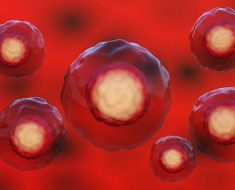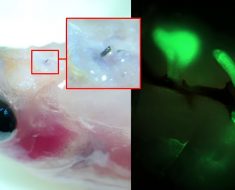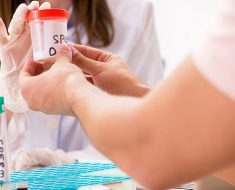Bruker Corporation and King Abdullah University of Science and Technology (KAUST) jointly announced the establishment of the Bruker Arabia office at the KAUST Research and Technology Park, furthering the trusted partnership between the two organizations.

The University’s partnership with Bruker began more than a decade ago, with Bruker a key partner in equipping the KAUST laboratories. Over the years, the relationship has grown successfully in the field of nuclear magnetic resonance, leading to the establishment of the KAUST-Bruker Center of Excellence (CoE) for Magnetic Resonance in 2018 within the University’s Core Laboratories.
The CoE bridges people, ideas and scientific knowledge from around the world to bring high-value life science and materials science solutions to the community. The collaboration has recently expanded into broader technological fields to include X-ray analytical instrumentations, mass spectrometry and surface science.
Bruker and KAUST expect a positive and significant impact from the new Bruker Arabia office on research and development at the University and the scientific research community across the region. The new level of customer support will connect the research community with Bruker, helping to pave the way for new scientific discoveries in functional structural biology, proteomics and metabolomics research as well as molecular and cellular science.
KAUST aspires to be the deep tech heart of the Saudi Economy and the KAUST Research Park is central to achieving this goal. University-industry collaborations are critical in accelerating impactful science and innovation and we are delighted to welcome Bruker to our dynamic and innovative community of more than 50 companies. This is another step in our long-standing partnership with Bruker to enable technological advancements that benefit KAUST, the Kingdom and the world.”
Dr. Kevin Cullen, Vice President of Innovation and Economic Development, KAUST
Dr. Falko Busse, President of the Bruker BioSpin Group said: “This level of enhanced support from Bruker, in conjunction with the university’s expert staff, comprehensive research ecosystem and scientific research infrastructure, places KAUST in a preeminent position in Saudi Arabia, the region and the international scientific community. Our long and fruitful relationship with KAUST and its world-class researchers is an example of how earnest vendor-customer relationships lead to better scientific outcomes.”
“The KAUST-Bruker CoE’s memorandum of understanding gives KAUST the opportunity to view Bruker’s future technical roadmap,” said Christian Canlas, KAUST Imaging and Characterization Core Lab Team Lead and Senior Staff Scientist, Nuclear Magnetic Resonance. “Having a Bruker office on campus marks another key milestone in our mutually beneficial partnership.”
Bruker is committed to its customers’ success, and this partnership enhances access to Bruker’s advanced scientific research technology for principal investigators, collaboration partners, staff and students across Saudi Arabia. The new office at KAUST puts us in the best possible position to combine our exceptional facilities and advanced equipment with inspirational consulting, training and support.”
Ohoud Alharbi, Executive Business Manager, Bruker Arabia Office
Bruker BioSpin – NMR, EPR and Imaging





